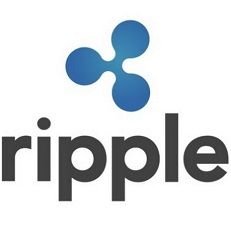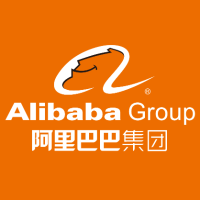How Ripple Might Really Enter China's Market (repost)

When word started circulating last week that Alibaba might be running a Ripple validator node, a key question emerged – could this be the blockchain company's road into China?
The answer, it seems, is both yes and no. While Ripple denied the rumors, it did confirm that it was looking to break into the Chinese market.
On the surface, neither statement is surprising. Of course, Ripple wants to break into China. Any fintech-related business would, given its massive size and high connectivity. And if Alibaba (or, more likely, a division) were running a node, it would make sense to keep quiet about it to avoid a speculative frenzy that would push up the price of the token, which could in turn affect the terms of any deal.
The thing is, just because Alibaba isn't running a node, doesn't mean that the companies aren't talking.
In fact, a partnership between Ripple and Alibaba makes a lot of sense – and not just for the two companies that would be involved.

How Ripple benefits
For Ripple, a San Francisco-based startup that has raised nearly $100 million to disrupt global messaging consortium Swift, the target is tempting.
As China's push into global trade intensifies, so do the pain points for cross-border payments, including capital controls, fast-changing regulation and relatively high costs. What's more, the strong growth of China's cross border e-commerce – now at almost 20% of total foreign trade – further fuels demand for cheap and fast currency flows.
Forging a relationship with any of China's large banks, however, will be tricky, given the heavy influence of the state and its reluctance to involve foreigners in its financial system. An affiliation with one of the internet giants, with their technology-first focus and their access to a sizeable user base, would be a much more efficient entry into the market.
Yet, while the large internet companies have their own financial arms (and could be considered banks), their businesses are largely consumer-facing, while Ripple’s operations revolve around bank-to-bank transfers.
However, CEO Brad Garlinghouse recently said that he expected Ripple to break into the consumer market within five years.
Where better than the largest consumer market in the world? A partnership to explore more efficient clearing in one division could be just the tip of the iceberg.

What Alibaba gains
Given Alibaba's sprawling structure and global ambition, blockchain technology has potential applications in many areas of its business, and in-depth work is already going on.
Of all the conglomerate's businesses, however, it is perhaps affiliate Ant Financial that offers the most obvious short-term opportunity for Ripple.
In a recent interview, its CEO confirmed that it is looking into blockchain technology to underpin Alipay, which dominates China's $5.5 trillion mobile payments sector.
Another potential focus of collaboration could be Alibaba’s electronic global trading platform, announced last year. Starting with Malaysia, the aim is to forge a network of bilateral links between China and sovereign trading partners, facilitating logistics, negotiating favorable tariffs and (take note) providing a platform for cross-currency electronic payments.

Where regulators might stand
But, other parties could also emerge as champions of such a deal. For example, moves by the Chinese regulators reveal an urgent need for transparency.
Last week, the People's Bank of China mandated that all third-party mobile payments be cleared through a central platform by next June, to allow greater access to payment data and to keep an eye out for illicit movements.
This trend is unlikely to be reversed in the foreseeable future – on the contrary. It does, however, add layers of cost that a blockchain platform could mitigate.
Ripple's solution could offer a means of settlement that bypassed central clearing, while still allowing the regulators to monitor flows.
Given the obvious strategic benefit, it is likely that the main parties involved are at least talking. Whether cultural, economic and technological barriers can be overcome, however, is another matter.
Should exploration go ahead, it would be a big step forward in blockchain development globally. It would also boost cross-border transactions… and relationships.
Disclosure: CoinDesk is a subsidiary of Digital Currency Group, which has an ownership stake in Ripple.
(Source: Coindesk: https://www.coindesk.com/hints-rumors-ripple-might-really-enter-china/)
really cool post and it might explain the ripple rise because i cannot find one
maybe gossip led to rumour and that led to a buying rush
in that case it will not hold, if it really is just a nice boost that will hold i doubt it would be so steep though, im just a bit worried
do not get me wrong, I am glad to see it rising and really needed it, a big part of my small holdings were in ripple, now i have liquidated a bit (with a 15% profit) but am still holding most.
the boost is unexplained but might be some people coming back out of bitcoin into the alternatives and ETH is risky in their eyes due to the upcoming fork?
It would indeed be nice to have an actual reason for why its going up though
lets hope the ripple turns into a wave
Congratulations @wildy! You have completed some achievement on Steemit and have been rewarded with new badge(s) :
Click on any badge to view your own Board of Honor on SteemitBoard.
For more information about SteemitBoard, click here
If you no longer want to receive notifications, reply to this comment with the word
STOP